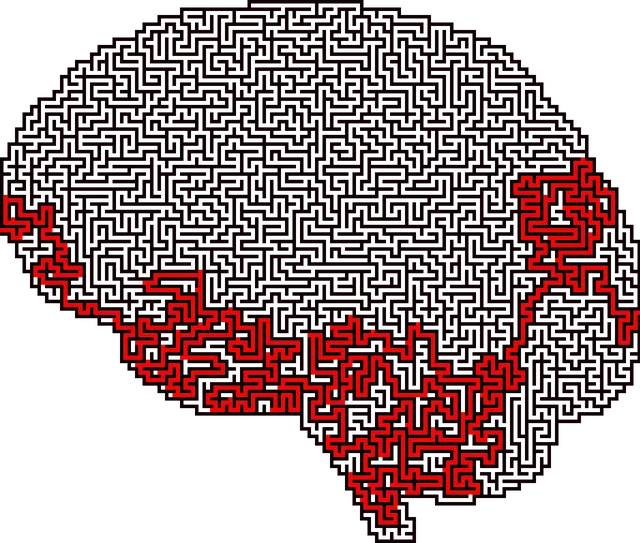Kaiser Permanente mental health services in Arvada utilize the Role Frequency and Moment (RFM) model to predict and prevent mental deterioration, especially among individuals with chronic conditions or trauma. They implement resilience-building exercises through a structured program involving needs assessment, evidence-based techniques, training facilitators, and promoting daily mindfulness practices. Integrating these strategies into care plans enhances patient outcomes, fosters cultural sensitivity, strengthens social connections, and reduces anxiety. Measuring success through participant engagement, mental health improvements, and well-being, Kaiser Permanente's RFM programs have shown positive results, such as the Community Outreach Program and Mental Wellness Podcast Series, contributing to community resilience.
Resilience is a powerful tool in enhancing mental well-being, especially for individuals navigating challenging circumstances. The RFM (Resilience, Flexibility, and Mastery) model offers a structured approach to building resilience, focusing on coping strategies and self-efficacy. This article explores the implementation of RFM at Kaiser Permanente Arvada, its impact on mental health support, and provides a comprehensive guide to integrating resilience-building exercises into care plans. Discover how these programs can be measured for success, offering valuable insights for healthcare professionals aiming to improve patient outcomes in the context of Kaiser Permanente’s commitment to mental health services in Arvada.
- Understanding RFM and its Impact on Mental Health Support at Kaiser Permanente Arvada
- Implementing Resilience-Building Exercises: A Step-by-Step Guide
- Integrating RBF into Care Plans: Best Practices and Potential Benefits
- Measuring Success: Evaluating the Effectiveness of RFM Programs at KP Arvada
Understanding RFM and its Impact on Mental Health Support at Kaiser Permanente Arvada

At Kaiser Permanente Arvada, understanding the Role Frequency and Moment (RFM) model is a game-changer in providing effective mental health support. This framework helps clinicians navigate the complex needs of their patients by identifying individuals at risk of deteriorating mentally, especially those facing chronic conditions or traumatic events. By analyzing an individual’s engagement with mental health services over time, RFM allows healthcare providers to proactively offer tailored interventions.
Through this approach, Kaiser Permanente Arvada ensures that every patient receives comprehensive care, including crucial aspects like mood management and trauma support services. The hospital’s commitment to cultural sensitivity in mental healthcare practice further enhances the impact of RFM, fostering an inclusive environment where diverse communities feel heard and understood. This holistic strategy not only improves individual outcomes but also contributes to the overall resilience building within the community.
Implementing Resilience-Building Exercises: A Step-by-Step Guide

Implementing resilience-building exercises is a powerful way to empower individuals and communities, especially in the context of mental health support like that offered by Kaiser Permanente Arvada. Here’s a step-by-step guide to get you started:
1. Identify Needs and Goals: Begin by assessing the specific needs of your target audience. Are they facing stress, anxiety, or trauma? Understanding their unique challenges will help tailor exercises that resonate and offer meaningful support. For example, Kaiser Permanente mental health professionals might focus on integrating Mindfulness Meditation practices for stress reduction.
2. Design a Comprehensive Program: Develop a structured program encompassing various resilience-building techniques. Incorporate evidence-based methods like Mental Wellness Journaling Exercise Guidance to encourage self-reflection and processing of emotions. Include activities promoting problem-solving skills, emotional regulation, and coping strategies. The program should offer a balanced approach, combining individual exercises with group activities for a supportive community environment.
3. Pilot Test and Refine: Before full-scale implementation, pilot test the program with a small group to gather feedback and make necessary adjustments. This ensures that the exercises are accessible, engaging, and effective. Consider including Mental Wellness Coaching Programs Development to provide personalized guidance and support during the pilot phase.
4. Train Facilitators: Ensure that facilitators or instructors are well-versed in the chosen exercises and have the skills to guide participants effectively. They should be able to create a safe space for vulnerability, encourage active participation, and offer tailored assistance when needed.
5. Promote Regular Practice: Resilience is not built in one session; it requires consistent practice. Encourage participants to incorporate daily mindfulness practices or journaling routines as part of their self-care rituals. Regular engagement with these exercises will foster long-term mental wellness, enabling individuals to navigate challenges with increased resilience.
Integrating RBF into Care Plans: Best Practices and Potential Benefits

Integrating Resilience-Building Exercises (RBF) into care plans at Kaiser Permanente mental health centers in Arvada offers a promising approach to enhancing patient outcomes and overall well-being. Best practices involve tailoring activities to individual needs, ensuring cultural sensitivity, and incorporating evidence-based techniques. For instance, Empathy Building Strategies can foster deeper connections between patients and healthcare providers, promoting understanding and coping mechanisms.
Social Skills Training, another potent tool, equips individuals with the ability to navigate social interactions more effectively, reducing anxiety and improving support networks. By integrating these strategies within care plans, Kaiser Permanente Arvada promotes Mental Health Awareness, empowering patients with resilience tools that can significantly impact their daily lives and long-term mental health trajectories.
Measuring Success: Evaluating the Effectiveness of RFM Programs at KP Arvada

Measuring Success is a critical aspect of evaluating the effectiveness of Resources, Strengths, and Motivations (RFM) programs at Kaiser Permanente mental health facilities in Arvada. The success of RFM initiatives can be gauged by tracking participant engagement, improvements in mental health outcomes, and overall well-being. At KP Arvada, dedicated teams employ qualitative and quantitative methods to assess the impact of these programs. This includes surveying participants on their perceived growth, analyzing attendance records, and collecting feedback from healthcare providers.
The Community Outreach Program Implementation at KP Arvada has been particularly successful in fostering resilience through various workshops and support groups. Additionally, the Mental Wellness Podcast Series Production has played a significant role in reaching a broader audience, offering accessible resources for burnout prevention and mental wellness. These evaluations not only highlight the immediate benefits but also contribute to the ongoing refinement of RFM strategies, ensuring they remain relevant and impactful in promoting resilience within the community.
The implementation of Resilience-Building Exercises (RBF) within Kaiser Permanente Arvada’s mental health support system has shown promising results, as demonstrated by the measured success in their RFM programs. By integrating these exercises into care plans, KP Arvada has taken a proactive step towards enhancing patient resilience and overall well-being. This approach not only complements traditional therapy but also empowers individuals to navigate life’s challenges more effectively. The step-by-step guide provided offers a clear framework for other healthcare providers to adopt similar strategies, potentially revolutionizing mental health care in the Kaiser Permanente network and beyond, with a focus on improving patient outcomes in Arvada and beyond.






